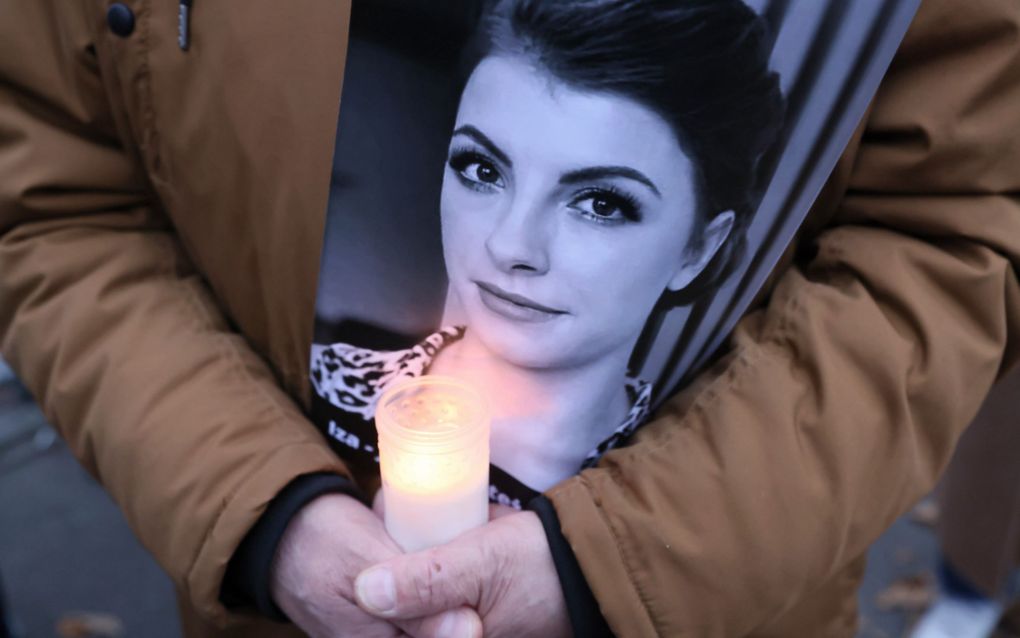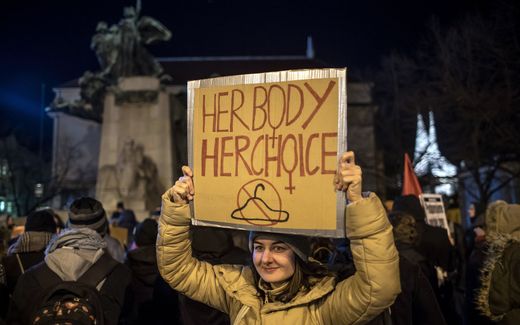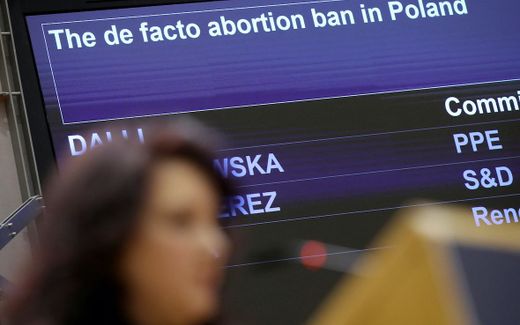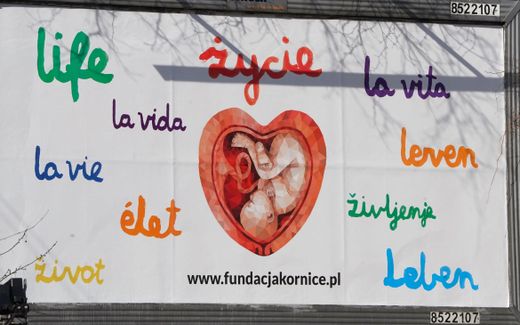Protests in Poland after the death of a pregnant woman

People take part in a protest under the slogan "Not one more" in Warsaw against the strict abortion law. Photo EPA, Leszek Szymanski
Central Europe
Tens of thousands of people across Poland protested on Saturday against the abortion laws in their country after the death of a pregnant woman. The mother died in September, but her death became widely known this month.
In protest marches, the protestors chanted "Not one more" in the capital Warsaw, among other places, and held up photos of 30-year-old Izabela, who died in a hospital. According to women's rights groups, she is a victim of the near-total abortion ban that has been in place for a year Polskie Radio writes.
Izabela had died in a hospital in Pszczyna in the south of the country. She was 22 weeks pregnant with significant problems. "The doctors waited for the foetus to die. The foetus is dead, the patient is dead, septic shock," explained the family's lawyer, Jolanta Budzowska.
According to the family and her lawyer, the doctors at the hospital held off terminating her pregnancy even though her foetus lacked enough amniotic fluid to survive. The doctors have been suspended, and prosecutors are investigating Euronews reports.
Instructions Health Ministry
Izabela was married for ten years, and a mother of a nine-year-old child described her worsening condition in text messages made public since her death. "The child weights 485 grams. For now, thanks to the law on abortion, I must remain to lie down," she said. "And there's nothing they can do. They will wait until (the baby) dies or until something starts, and if not, I can, great, expect septicaemia," Izabela wrote in a text to her mother. "My fever is increasing. I hope that I don't have septicaemia. Otherwise, I will not make it," the pregnant mother said.
In reaction to the hospital death of Izabela, Poland's Health Ministry issued instructions Sunday to obstetricians confirming that it is in line with the law to terminate a pregnancy when the woman's health is in danger, even more so in case of threat to her life. It included guidance in case of premature loss of the amniotic fluid. "It should be clearly stressed that doctors must not be afraid to take evident decisions, stemming from their experience and the available medical knowledge," the ministry said.
The protests continued for the second day, Sunday, the largest in Krakow, in the south. Thousands of protesters lit mobile phone lights and held a minute of silence in memory of the woman. They then walked to the headquarters of Krakow church authorities, chanting against Poland's new abortion restriction.
Misinformation
Conservative groups –including members of the ruling coalition– have argued that the death of Izabela should not be linked to the abortion law, Notes from Poland writes. Yesterday, a conservative legal body issued a letter signed by lawyers, medical specialists and priests criticising "misinformation" around the case. "It is unacceptable to use this situation for inciting political disputes and social unrest," they wrote. A senior lawmaker from Poland's ruling party, Marek Suski, has also claimed that Izabela's death had "nothing to do with" the abortion law. "The fact that people die is biology," he said. "And unfortunately, sometimes women die in childbirth."
Ordo Iuris, a conservative organisation that lobbied for the restriction of abortion in Poland, has argued that the tragedy resulted from medical malpractice. It has criticised those who blame it on the abortion law, which it notes still allows terminations in the case of a threat to the mother's life or health.
Until a year ago, women in Poland could have abortions in three cases: if the pregnancy resulted from a crime like rape, if the woman's health or life was at risk, or in the case of irreparable defects of the foetus. That last possibility was eliminated a year ago when the Constitutional Tribunal ruled it went against Poland's law.
Related Articles






